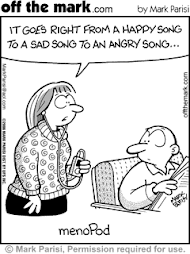1.Should sex education be taught in the nation’s public schools, and if so, what kind of education should be provided? (Abstinence-only? Abstinence-plus?)
With the sexual revolution and the discoveries of new diseases, parents and educators are at ever-increasing odds to what is the best way to educate children about sex. I personally have come across this question twice. One of this question was faced when I was back home (Which is Nepal) and one of which is in the U.S. I managed to come up with two different aspects of self opinion which is- I exclaimed with a genuine gesture as to the belief of not educating children about sex. I was molded by this belief because of the atmosphere I contained in. In a country I belong to, it is unethical to talk about sex with children who are considered to be very innocent and on talking or educating about sex could only influence them into following the path they have never heard of. Similarly, at another instance- with time, I realized my opinion differed from the primary one. I now believe that sex education “is advisable”, advisable, only because it should have an extent of the level of education being given.
With time, the gap in between generations’ is increasing, and the only way to fill in the gaps, in-order to protect and prevent the younger generation, is by understanding the youth mind and helping them think in a way that could prevent and prepare them when taking a step into the unknown. Sex education in public schools would help prevent spreading of diseases and pregnancies. An article from “The Washington post” emphasizes that “the rate of increase in teenage pregnancies has increased sharply in more than half of American states.” With regard to the statistics, there has also been an increase in sexually transmitted diseases. Therefore, sex educating children about abstinence and guiding them each step of the way can prevent teenagers from facing such consequences. Although this sounds simple enough, it is rather very difficult to do. There are cases in which parents are hesitant in talking and opening up with their children when it comes to sex. Therefore, the parents should first be encouraged to acknowledge their children up to the extent of sex education they want to give; the issue is the decision between parents and educators on what is the best way.
There are various massages being given to the children who are getting themselves into confusion, for example, “Just Do It”, “Just Say No” and “Just Wear a Condom”. The logo delivered is without proper guidance and clarification. It’s relieving a message to abstain but again says to use a condom. Messages like these have a big impact in the children’s choices, because with out proper guidance and good choices in education, children will make choices of the moment instead of the future.
Thus, Parents and sex educators should teach children about birth control, abstinence, if not- safe sex, because of the opposing morals, psychological and social dilemmas parents and teachers need to decide the best way, “choice differs”








